Standing on the global stage of the World Economic Forum’s annual meeting in Davos, I was reminded of one powerful truth: change begins at the grassroots level. I was privileged to bring the youth perspective to high-level discussions along with 50 representatives of the Global Shapers Community delegation this year. From dialogues on sustainability and gender equality to corporate responsibility in reproductive health, the experience reinforced a clear message—young leaders are not just the future, but the present force driving meaningful change.
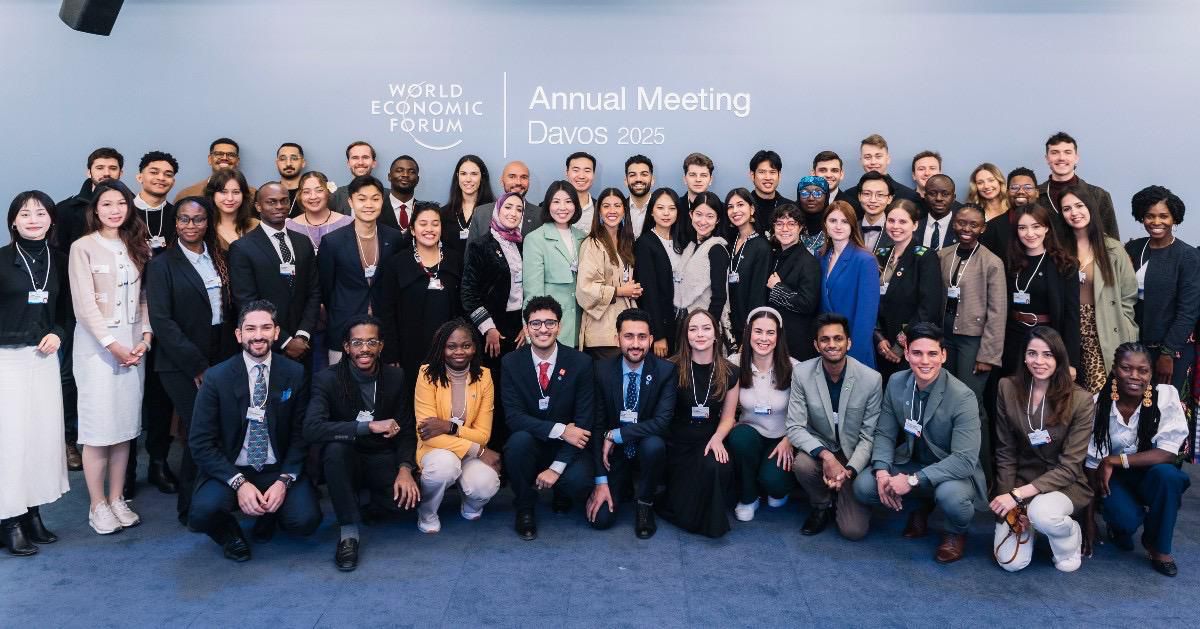
In 2025, around 3,000 people from more than 130 countries participated in Davos. Photo credti: World Economic Forum
Founded in 1971 by German economist Professor Klaus Schwab, the World Economic Forum is not only an annual forum but an international organization for public-private cooperation committed to improving the state of the world.
The annual meeting, commonly known as Davos, attracts thousands of people every year. In 2025, it welcomed nearly 3,000 attendees from over 130 countries. This year’s theme, Collaboration for the Intelligent Age, aimed to address shared challenges and explore sustainable solutions spread over 500 sessions.
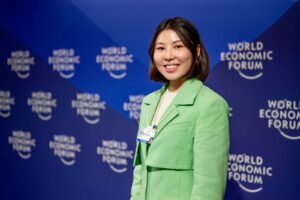
Aray Serikzhanova. Photo credti: World Economic Forum
In 2011, Schwab established a Global Shapers Community, a network under the World Economic Forum with the mission to empower young leaders, innovators, activists and changemakers under 30 to develop local solutions to pressing challenges. Every year, 50 young leaders from the Shapers Community are selected to attend Davos from among 18,000+ Shapers across over 500 hubs worldwide to amplify youth voices. I was chosen from among 600 applicants to represent the region of Central Asia and Armenia at the event as part of the Global Shapers Community Hub, which was founded in 2013 by Sayasat Nurbek, Kazakhstan’s Minister of Science and Higher Education.
“The key to everything is cooperation,” noted Schwab at the opening Foundations Dialogue session. One of the professor’s most profound messages during this session was the importance of “constructive optimism.” He emphasized that as a young generation, we are responsible for our own future; we create and shape it, and this motto of constructive optimism can become the driving force in this era of uncertainty.
The forum’s agenda was intense yet fruitful, offering valuable opportunities for networking, potential collaborations, and, most importantly, growth. I was invited to speak at the United Nations Population Fund (UNFPA) side event, Champions for Reproductive Justice in Business, which launched a community of organizations that are driving corporate accountability for women’s reproductive health.
Sharing the stage with champions such as Amref Health Africa, Sweden’s Essity, Germany’s Bayer, Swiss Ferring Pharmaceuticals and MSC Mediterranean Shipping Company, I shared the perspective of young professionals on how sexual and reproductive rights in the workplace are practically implemented.
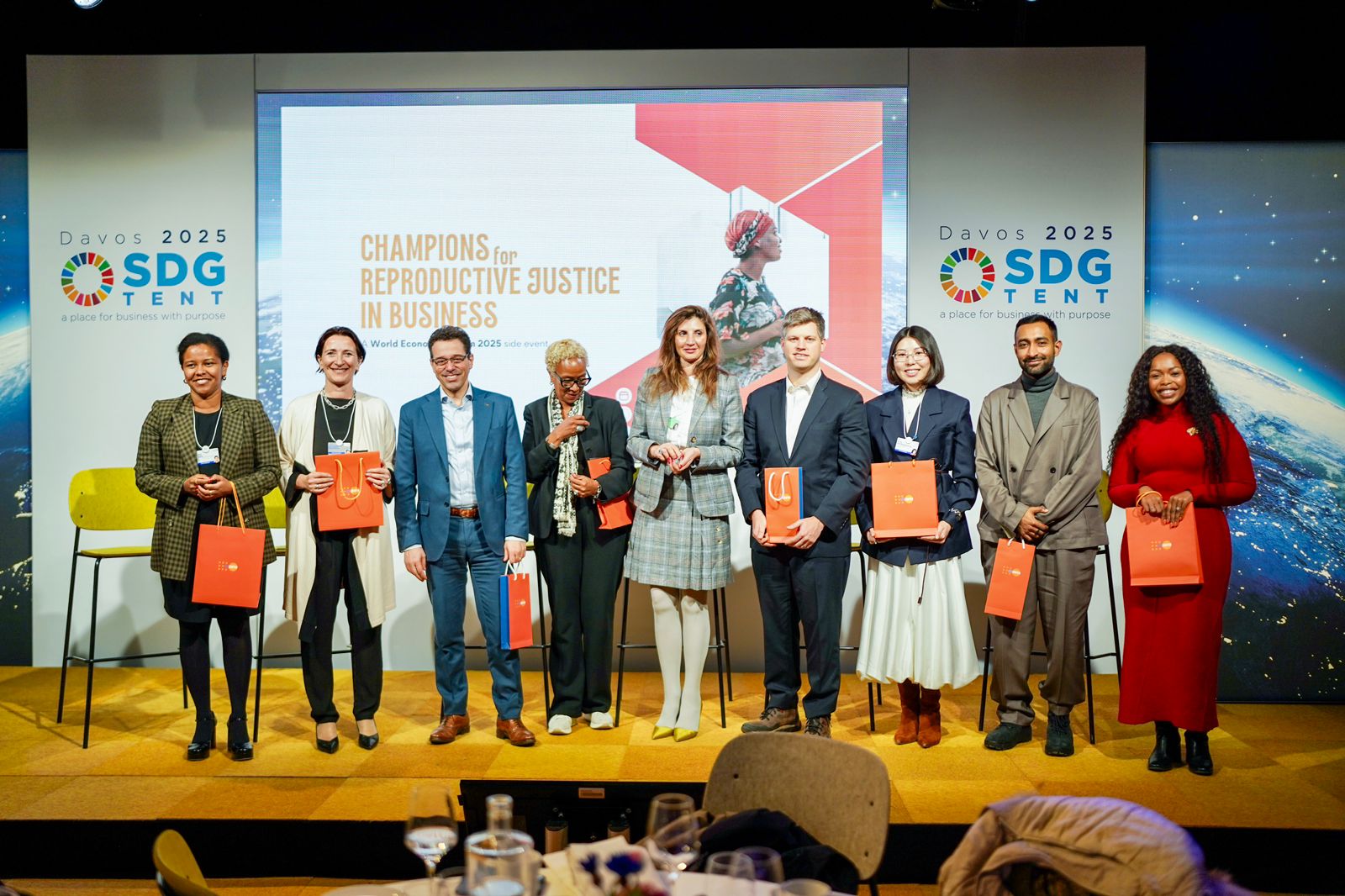
Photo credti: World Economic Forum
Young people are often placed in vulnerable positions, stepping into the workplace as young junior-level employees, planning families, and facing the difficult choice between career advancement and starting a family. It is a universal issue that many young people face globally due to inadequate sexual and reproductive health and rights (SRHR) policies that reflect a systemic problem businesses can and must address.
However, the good news is that the Coalition for Reproductive Justice in Business has developed a framework and metrics for companies to advance SRHR for their workforce. According to Dr. Natalia Kanem, the executive director of UNFPA, “Women represent nearly 40 percent of the global workforce. Yet, the average workplace was not built with a woman in mind.”
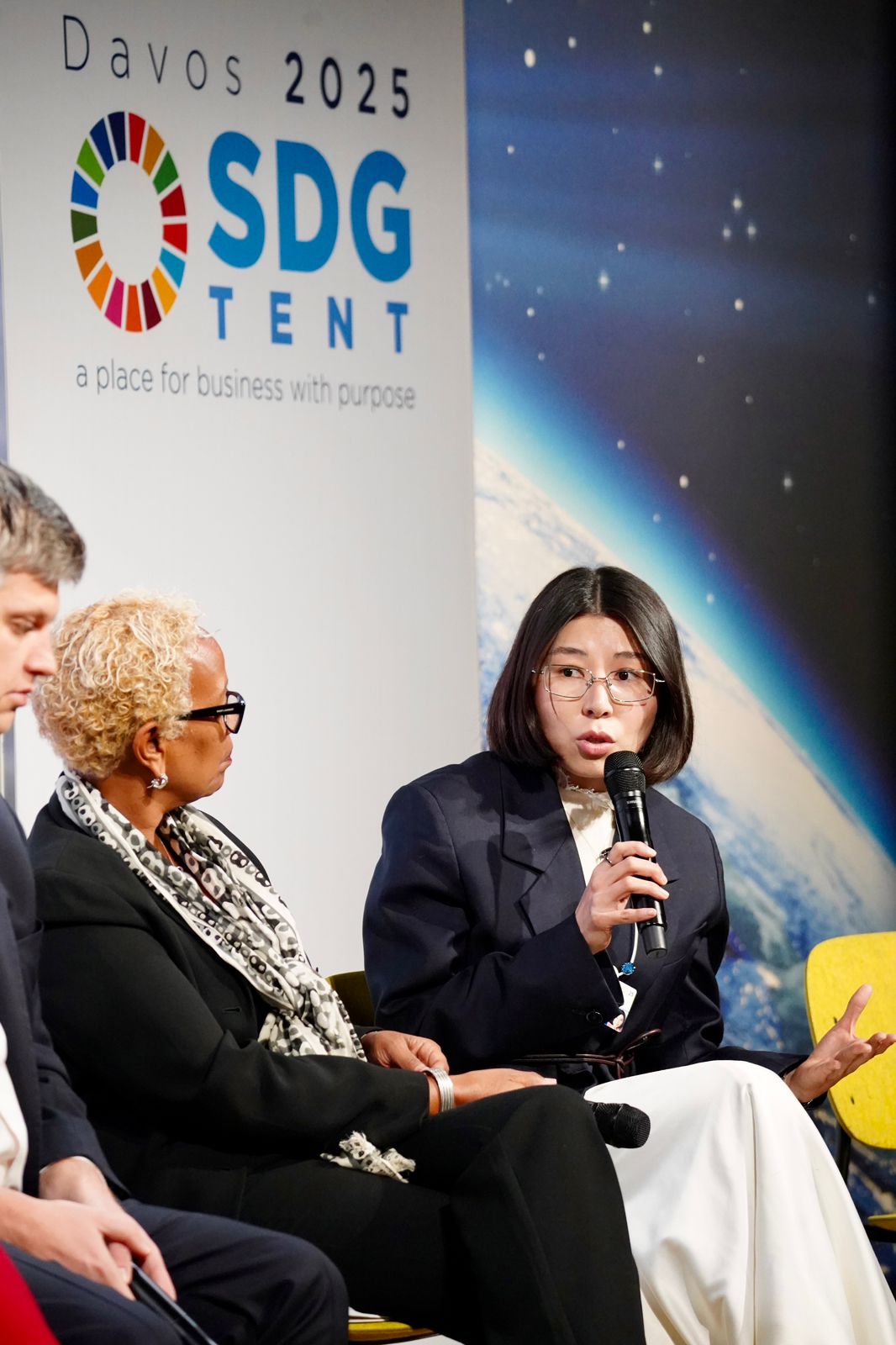
Photo credti: World Economic Forum.
Challenging this status quo and changing it through understanding that investing in women’s health transforms workplaces and creates a blueprint for global change is my key takeaway from this session and the action I would like to bring back home to Kazakhstan and my region.
A particularly impactful moment was listening to the Belgian fashion designer Diane von Furstenberg, who shared, “I always wanted to be a woman in charge. But it’s not an aggressive statement – it’s about turning vulnerability and imperfection into strength.” It accurately represented female leadership and a reminder that true leadership is about authenticity and growth.
Beyond the big names and discussions, the most inspiring moments came from fellow Shapers – young leaders from all around the globe creating real impact in their communities. From tech education for girls to youth-led climate funds, the result of their work has demonstrated that meaningful change starts at the grassroots level.
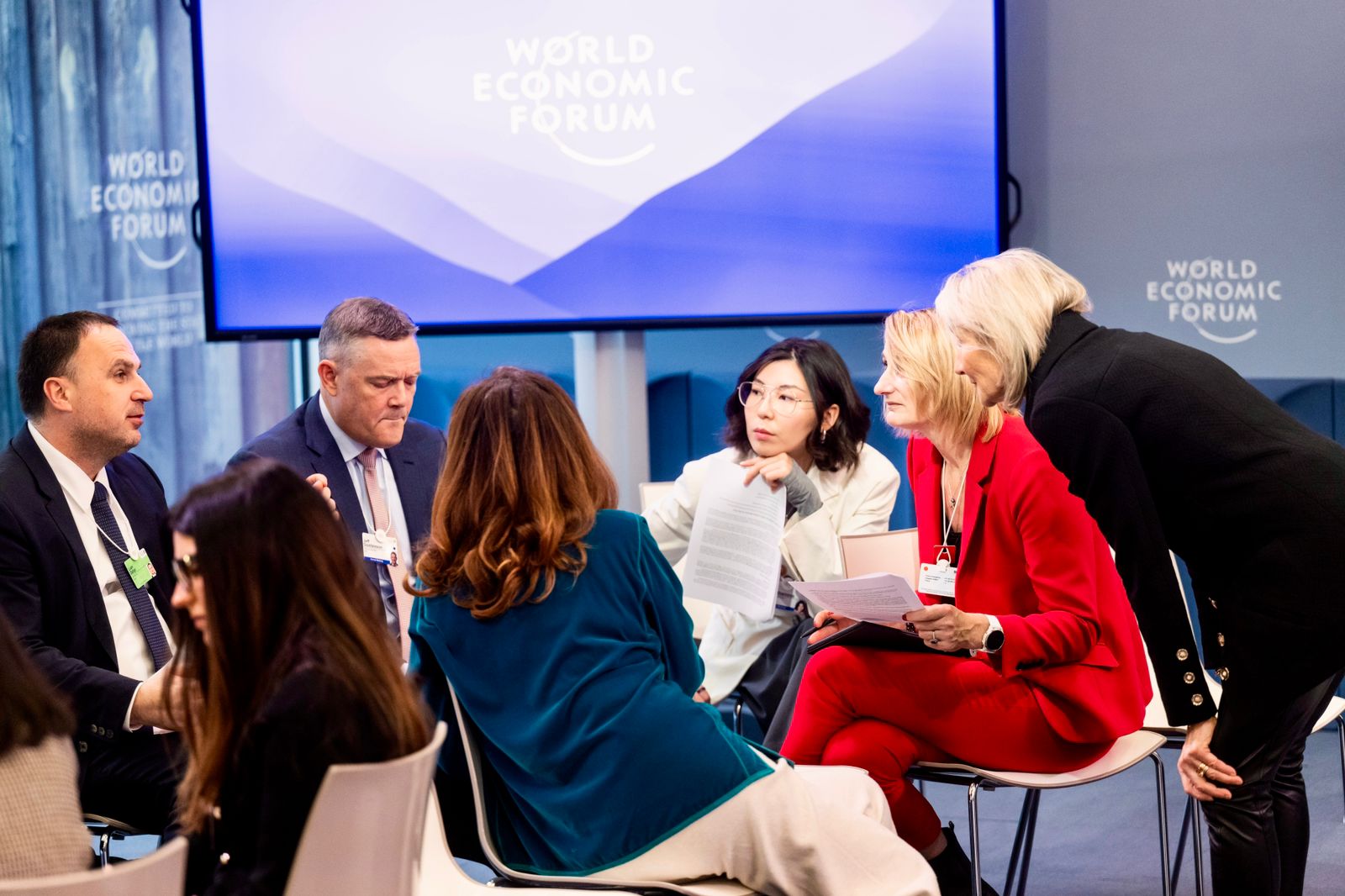
Photo credti: World Economic Forum.
Davos reinforced one clear message: the world needs young voices, bold ideas and action-driven leadership. Professor Schwab said, “The young generation is an important component of stakeholder value.” This experience of sharing valuable insights, having meaningful dialogues and connecting to leaders of the world has only strengthened my commitment to driving sustainability, gender equality and youth empowerment in Kazakhstan and Central Asia.
The author is Aray Serikzhanova, a vice-curator of the World Economic Forums’ Global Shapers Community Hub and an ESG professional. She has played a key role in integrating international ESG standards in Kazakhstan’s energy sector and advocating for inclusive leadership.
